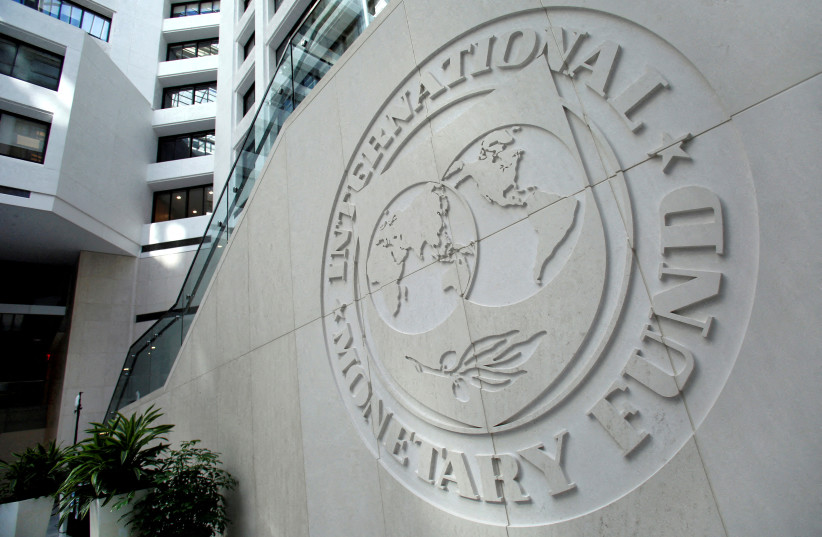Strengthening Palestinian business activity in Area C of the West Bank will help boost its flailing economy, the World Bank and the United Nations said in reports they delivered to a donor conference in advance of its plenary session in Brussels on Tuesday.
Such links would "boost the Palestinian economy by about a third and increase the PA’s revenues by six percentage points of its gross domestic product,” the bank said. “Area C remains key to Palestinian economic development, but access to this area remains severely limited.”
In a past report, the World Bank estimated that such increased monetary activity, including in the agriculture sphere, could be worth $4.15 billion for the Palestinians.
These reports along with those authored by the International Monetary Fund, Israel and the Palestinian Authority are designed to help the 15 members of the Ad Hoc Liaison Committee (AHLC), which meets at least twice annually, better target plans to help improve the Palestinian economy.
It’s one of the few forums in which Israelis and Palestinians jointly participate in meetings with major allies to discuss how best to assist the Palestinians.

Initial gatherings were held on Monday. European Union Special Representative to the Middle East Peace Process Sven Koopmans tweeted that discussions were held on “practical projects to improve the Palestinian economic, water and financial situation.”
Tuesday’s meeting will be hosted by European Union foreign policy chief Josep Borrell and chaired by Norwegian Foreign Minister Anniken Huitfeldt. Israel is represented at the meeting by Regional Cooperation Minister Esawi Frej (Meretz).
The meeting comes at a time when in the absence of a peace process the international community, particularly the United States, is focused on improving the Palestinian economy, which struggles from a lack of sufficient revenues and an increased absence of donor funding.
International contributions to the PA’s budget fell to their lowest point of $317 million last year, down from $1.2b. in 2008. Initial World Bank fears that donor funds could drop as low as $184m. never materialized.
Aside from decreased donor funding, the Palestinian economy in 2021 struggled with the aftermath of the 11-day Gaza war in May, and the COVID-19 pandemic. That economy is also expected to be impacted by inflation and rising food prices due to the Russia-Ukraine war.
The Palestinian poverty rate is 27% and unemployment is at 24%, according to the World Bank.
Despite these many challenges, the Palestinian GDP grew by 7.1% in 2021, after constricting in 2020 by -11.3%. This year, however, the GDP is expected to drop to 3.7%, the World Bank explained.
IT CREDITED SOME of the 2021 economic growth to the Jewish state’s decision to provide 23,000 permits for Palestinians to work in Israel, a move that raised the total number of permits to 153,000.
Israeli transfers of tax fees it has collected on behalf of the PA increased by 12%, the bank said, adding however that Israel increased its monthly deductions from those transfers from NIS 42m. to NIS 50m. The deductions offset payments the PA makes to terrorists in jail and to family members of those killed in attacks against Israel. The bank noted that the budget for these payments increased this year.
Frej’s prediction after the AHLC meeting in November that such payments to terrorists and their families would stop has yet to come to fruition.
Revenue increases have allowed for a decline in the PA deficit that initially reached $1.2b. in 2021 and is expected to drop to $931m. this year, according to the World Bank.
“The size of the fiscal deficit has remained large. Given a sharp decline in aid from 27% of GDP in 2008 to 1.8% in 2021, the Palestinian Authority has accumulated a large stock of arrears to the private sector, the pension fund and domestic borrowing,” said World Bank Country Director for West Bank and Gaza Kanthan Shankar.
“As domestic financing options are no longer possible, pressing on with priority reforms to increase revenues and improve fiscal sustainability is very important,” said Shankar.
The bank warned that any economic improvement was limited because there were few sources of sustainable growth. There were also many challenges, the bank said, such as Israeli restrictions on Palestinian moment and access, falling donor funding and the divide between Fatah in the West Bank and Hamas in Gaza.
It also suggested that the PA explore more cost-effective measures with regard to staffing in the security, health and education sectors.
The PA security sector has 10 people for every 1,000 residents, compared to the global average of 4.5 for that same number of people, the bank noted.
“Aligning staff numbers and skills to the security needs of the Palestinian territories would allow these needs to be met at a much lower cost,” it said.
With respect to education, students at the United Nations Relief and Works Agency (UNRWA) schools have better scores on standardized tests with fewer teachers than at the PA-run schools, the bank pointed out. It noted that Public health spending has increased, but health care has not improved.
“Given this, the PA may undertake a functional review of the overall machinery of government to better align mandates, structures, and staffing,” the bank said.
